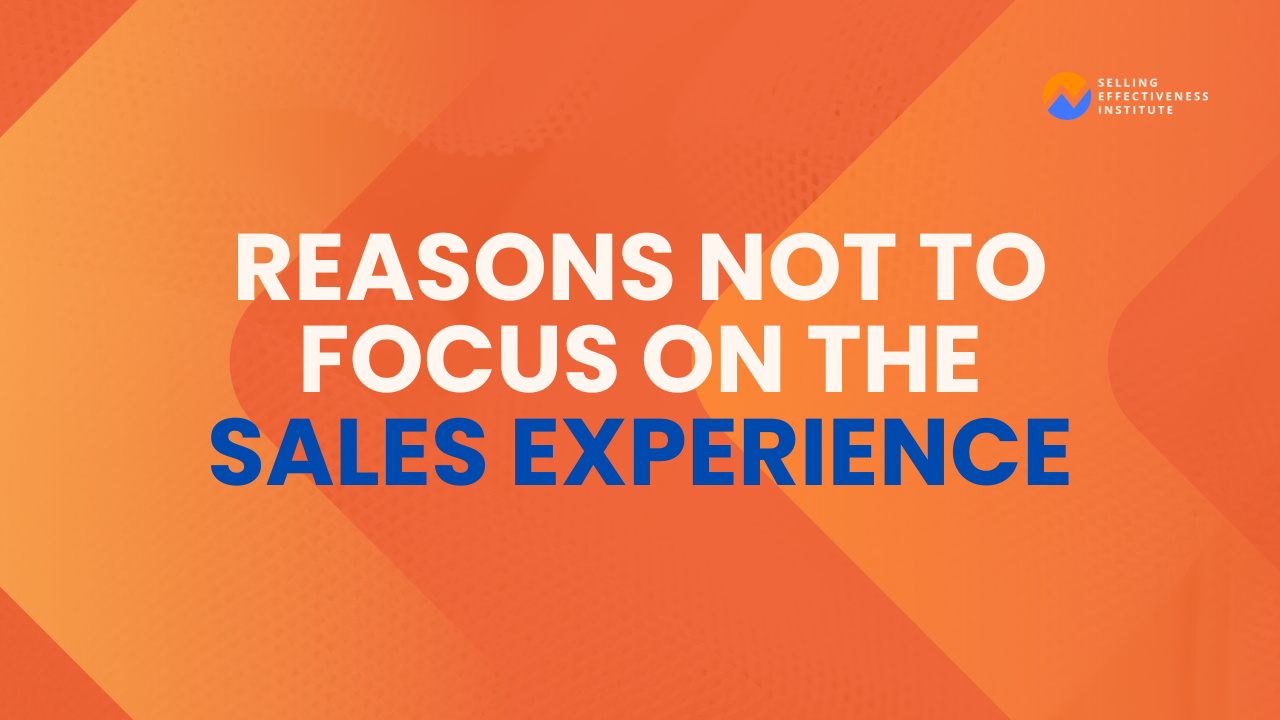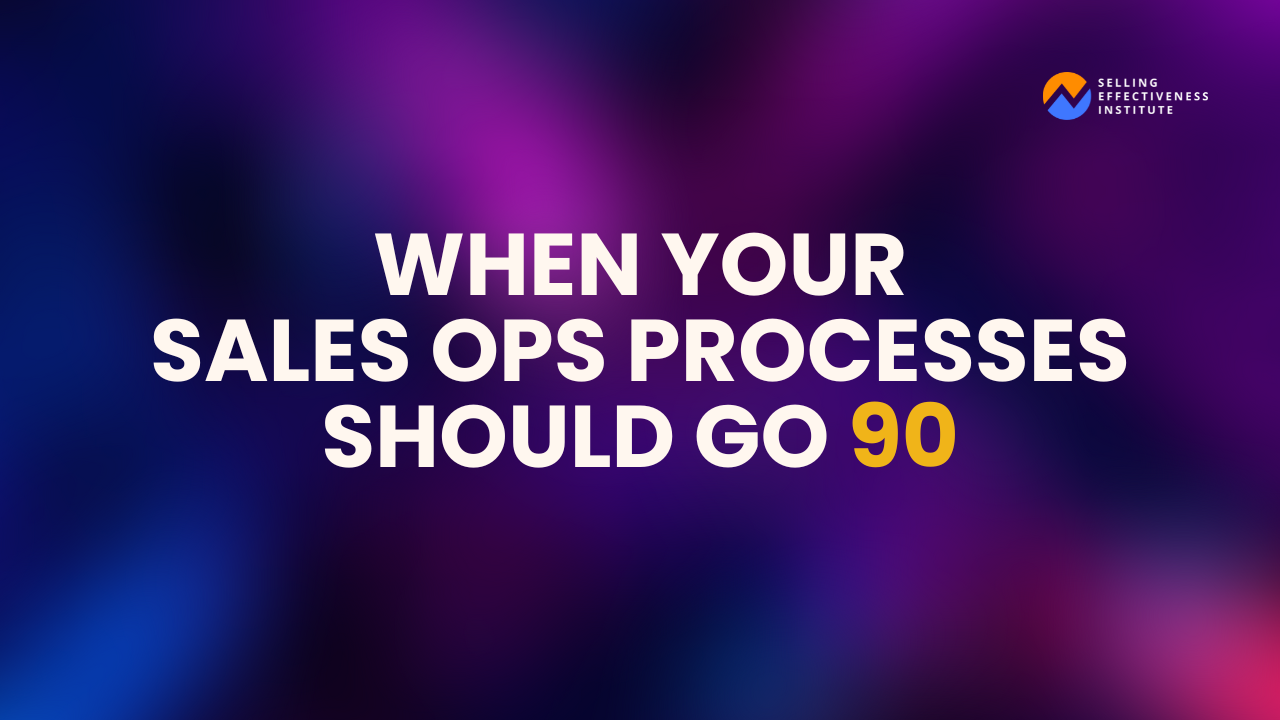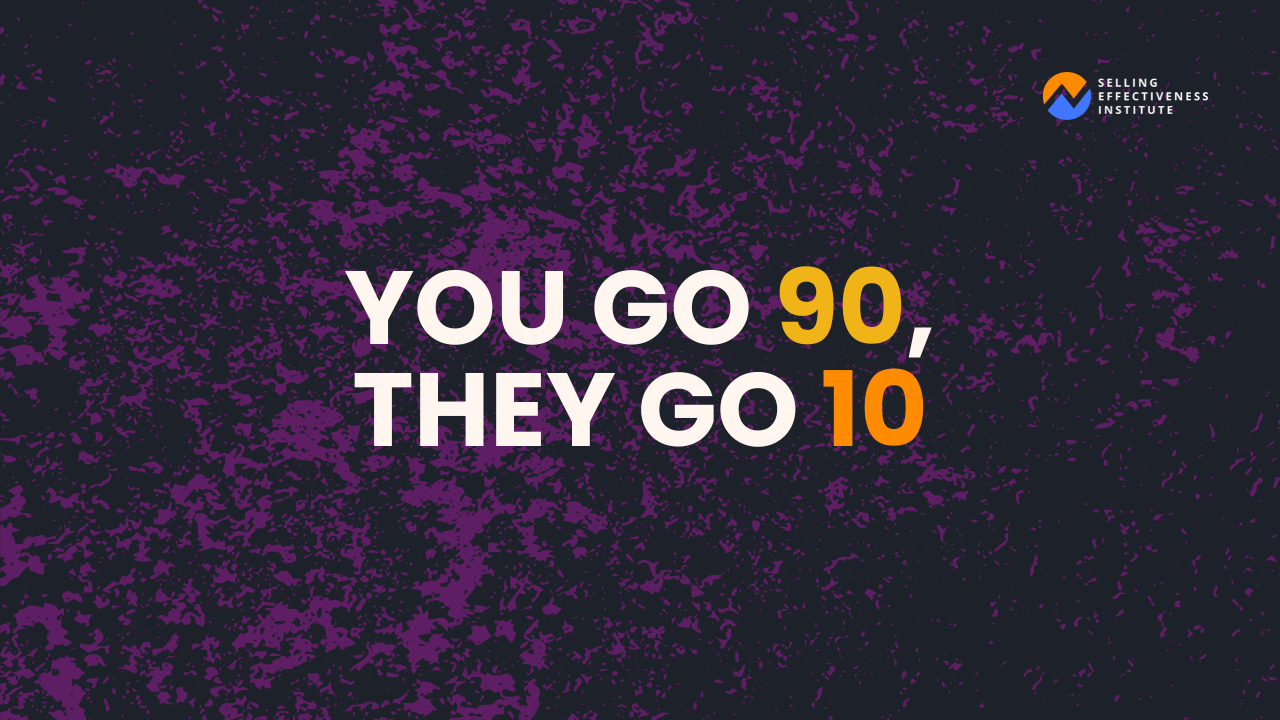How has technology played a role in shaping the way sales teams engage with clients?
E216: Diversity in Sales with Rakhi Voria – Part 1 of 4
Rakhi Voria, the current Director of IBM Global Digital Sales Development, has gone from selling lemonade as a kid to global sales leader and champion for diversity.
In this series we talk about diversity in the world of sales, to building out global digital sales teams and processes.
Some gems:
“There’s actually a lot of statistics out there that say that women are better at sales than men.”
“I think the traditional notions of what makes a person successful has really changed.”
“We have to get really, really crystal clear about what we’re selling, who we’re selling to, what their needs are, where they are in the industry.”
Download The Power of Authentic Persuasion ebook
Enroll in the Authentic Persuasion Online Course
Connect with Jason on Linkedin
Connect with Rakhi on LinkedIn
Rakhi’s Bio
As the Director of IBM Global Digital Sales Development, Rakhi Voria manages a team that is responsible for the strategy, implementation, and revenue of the Digital Sales Development (DSD) function globally. Within the DSD sales force, there are ~350 Digital Development Representatives and Business Development Representatives responsible for driving client engagement, deal progression, and closure of select deals. Rakhi previously worked at Microsoft and most recently served as the Chief of Staff to the Corporate Vice President of WW Inside Sales, where she played a key role in building a new digital sales force for Microsoft, growing the team to 2,000 digital sellers globally and the business to over $5B in under 3 years.
Rakhi has a strong passion for advancing women in sales and millennials in business and regularly shares her thoughts on these topics by speaking at conferences and writing publications in Forbes as a member of the Forbes Business Development Council. She currently serves as Executive Co-Chair of Women@IBM NYC, which is focused on attracting, retaining, and advancing women. At Microsoft, she was Co-Chair of the Women@Microsoft Board, a network of over 20,000 women across 15 regional chapters globally.
Rakhi has been featured in Geekwire, The Seattle Times, Vizaca, Career Contessa, Be Leaderly, and other publications and was named a Top Sales Woman to Watch in 2019. She earned her M.Sc. from the University of Oxford and her B.A. from Colorado College. Rakhi is based in New York City.
Rakhi’s Links:
Linkedin: https://www.linkedin.com/in/rakhivoria/
Twitter: https://twitter.com/rakhivoria
Forbes articles: https://www.forbes.com/sites/forbesbusinessdevelopmentcouncil/people/rakhivoria/#48e2218175a1
Women in sales documentary feature:
https://www.youtube.com/watch?v=hHAnPbQJSHQ
-
Show Transcript
Jason: Hi, welcome to the sales experience podcast. On today’s episode I have Rakhi Voria. She is currently the director of IBM global digital sales development, which is a mouthful. She’s previously helped build digital sales at Microsoft to a team of over 2000 digital sellers globally. She’s also a member of Forbes Business Development Council, Executive Co-chair of Women at IBM and YC, which she also had a similar role at Microsoft in the past. Rakhi, welcome to the sales experience podcast.
Rakhi: Thank you. Jason’s pleasure to be here.
Jason: So here you are having developed yourself as a kid from selling lemonade to a global sales leader and there’s so many topics that I want to talk about and just see where this conversation is going to go because you have had such a diverse kind of background and different path than I know for myself, I’m inside sales, telephone sales person, mostly consumer. Here you are focused mostly on digital sales, business, kind of big brand names, Microsoft, IBM and then also doing it on a global scale. And so let’s first start with the topic of diversity in sales and kind of what that means to you and what you’re focused on and how you think that helps with success in sales.
Rakhi: Sure. Well, I am usually passionate about having diversity in sales and particularly getting more women into sales and I think part of it is because of my own personal story. I myself fell into sales. I was not targeting a sales role when I applied to work at Microsoft straight out of graduate school, I applied for a marketing position and it was the recruiter actually who put me in the queue for sales and she said, you know, I think you listen intently. You communicate effectively, you have a consistent track record of success. All of those things are really important when it comes to sales, and I think I had this visceral reaction at the time. I sorta said, Oh my gosh, I would never go into sales. It’s so masculine, so competitive. I don’t have the personality for it. I’m not aggressive enough. But the recruiter was right.
Rakhi: I actually ended up loving my first sales role. It was a licensing sales specialist and I was actually really good at it. And so I think for so many different reasons, a lot of women tend to hold themselves back from sales positions. And I think a lot of people who might not necessarily fit certain characteristics of what a seller should “look like”. But I think it’s now more important than ever for so many different reasons. I mean, first of all, when you think about your customer base, the reality is we want to be able to emulate what our customers look like and our customers want to feel like they can engage with us and that we have empathy for them. And I think when it comes to women in sales in particular, there are a lot of reasons why women should go into sales.
Rakhi: First of all, women are really good at it. And so there’s actually a lot of statistics out there that say that women are better at sales than men. In fact, there’s also a lot of studies out there about how diversity is better for the bottom line. They say that companies with a higher number of diverse board directors have 42% higher return on sales compared to companies without that diversity on their board. So I think there’s a lot out there in terms of it just being better for the bottom line, but there’s also a lot out there on how it’s just the right thing to do.
Jason: Yeah, and it’s so fascinating that you talk about how women can be better at sales because in my experience, the top sales reps on most teams are women and not just because they have the killer thing, which is what I want to talk to you about as well. Right? It’s not that classic killer sales kind of approach, but just because when they get it and they can ask questions and they can listen and then move people forward. I think one of the biggest advantages that women have from all the successful ones I’ve seen in sales is that there’s no movies about women ripping people off in sales, which I’ve mentioned many times on the show in the past and I think that’s valuable where the stereotype is, if I, for example, if I’m calling somebody and it’s a sales type of interaction where I’m trying to sell to somebody, there’s going to be some level of guard that’s going to be up because they’re gonna think I’m out to sell them something for my own game. And when a woman calls somebody or is talking to someone about sales, it just generally the wall is down and it feels more like somebody who’s trying to help without those kinds of barriers.
Rakhi: Yeah, absolutely. I mean I think women have characteristics and skills that make them a very natural fit for sales. Like the ability to build trust or nurture relationships and listen and provide recommendations and all of the things that you just described.
Jason: Yeah. And then what’s interesting is that I know, you know, and this is probably what happened to you when you were not getting into our resisting it, when you wanted to go for the marketing role, is that thinking that to be successful in sales, you have to be this killer or you have to be this natural born salesperson or this person who’s going to manipulate or lie or push people to do things that they don’t want to do. When in fact, I mean, I think we’re both in alignment with this is that’s actually not what it takes to be successful. Long term, short term. Yes, you can do some shady stuff, but long term, no. And what the world needs is the opposite of those classic sales kinds of approaches.
Rakhi: That’s true. And I think even today, there’s still some times, unfortunately just a bad reputation that sales gets, I don’t know if you’ve ever read the book To Sell is Human by Dan Pink, but he asked individuals to describe what they think of when they hear the word sales. And the main adjectives were pushy, annoying, manipulative, dishonest. So I think those are words that no woman or man frankly wants to be associated with. And clearly there’s still a bias when it comes to sales, regardless of gender, frankly.
Jason: Yeah. Well, and that’s really the basis of my podcast, this show is to make that transition, help people realize like they can be successful in sales, which is why the stuff that you’re doing on a global ambassador standpoint, I think it’s so important because the more we can shift the way sales is done and how people view themselves as a salesperson know, the more we can eventually shift that perception of sales.
Rakhi: Absolutely.
Jason: So let’s talk about that, aspects of salespeople need to be a killer versus not. I mean, you’ve done some interviews and I’ve seen some videos where you’ve talked about that. Expand on that more in what you’re seeing kind of in digital sales or sales in general? You know.
Rakhi: Yeah, I mean I think the traditional notion of sales in general has really changed. And even the way that we sell and go to market has really changed. Customers have really shifted their desire to engage with companies from in person to digital engagement. We’ve seen a lot of data in the industry about that. A lot of teams that are building inside and digital skills, skills and organizations and everything to be able to, essentially meet customers where they are and help them with the right touch at the right time with the right insights and their digital journey. But I would say, I mean I think the traditional notions of what makes a person successful has really changed. It is the ability to show empathy, to listen, to be able to really understand what a company needs before actually essentially sharing what your offering is. And that’s too often what I think we see just too much of its people sort of going in with a mission.
Rakhi: We all have targets. I get it. I personally have a target, but the reality is it’s more about going to market with a conversation about your overall solutions versus one specific thing. That’s something we’ve thought a lot about at IBM, frankly. We actually recently have made some changes to the way that we sell and we think about things more from a conversation’s perspective versus a specific offering because so many of our different offerings actually come together as one. And so we’ve been training our sellers quite a bit on how to have those cross conversation discussions with people in a way that really asks them about what they need and how we can position our things to them versus being so aggressive and using that killer mentality that you described
Jason: And with your product and with a lot of things that I know with the companies I work with, what they have to sell is something complex, right? That’s why there’s some interaction and it’s not just an order that can be placed online. Yes, there’s digital sales that happen in all things. There’s an option for that, but a lot of times there needs to be some kind of conversation, some kind of discovery, some kind of solution-based prescription and diagnosis if you will. And I think that’s really where the value of salespeople comes in is not giving information or spewing out, like you said, where they start out talking about themselves, like the classic sales process. Especially if you’ve ever been to a trade show or walked up to a booth or gotten a phone call from somebody and they’re just spitting out monologues of information and telling you how great they are instead, asking questions and using discovery and trying to figure out what the solution is and then seeing the whole kind of catalog or buffet like you’re saying, of what else is in the solutions. What else can help that person with the goal of helping them, not selling them just this widget, but helping them get to a better place.
Rakhi: Yeah, and today I think things are still too vague. We have to get really, really crystal clear about what we’re selling, who we’re selling to, what their needs are, where they are in the industry. I think the best thing that salespeople can do is come up with customer references that are relevant. I can’t tell you how many times I have people who are trying to sell to me and they tell me something about something that’s in a completely different industry or a tiny startup. And I have to remind them while I work at a really big enterprise tech company, our needs are different, our desires are different. We have a lot of challenges that may be a small, a little bit more agile company, it might not have. And so I think the more we can really cater our messaging and tailoring it to the specific person that we’re talking to, even at an individual level, the better off we’ll be.
Jason: Which makes total sense. And I think that’s a valuable tip for anyone listening is be careful who you’re selling. I mean, I get that all the time on LinkedIn messages where people are just shotgunning messages to me and offering to help me grow my business without any idea of what I do or what I need or what I want. And I can imagine that same thing. I mean, you work at IBM, it’s a big company. If you know, I’m telling you some kind of easy solution or expecting you to make even a quick answer, quick buying decision, then it’s just not gonna work.
Rakhi: Absolutely.
Jason: So when you’re talking about there’s the process, it’s interesting because when I hear you talking about it, like I said, I’ve always been an inside sales, telephone sales person and leader. You’re on the digital side, right? But you also mentioned both is having that conversation, the digital, the phone, some kind of interaction, whether it’s online, but I think the valuable part that you said, which I appreciate and I’m always doing my part to not just focus on, just tell them everything’s gotta be telephone sales, right? It’s about a holistic solution. But really that point that you made about meeting people where they’re at or where they want to be in their buying journey, what are some of the things that you’ve developed with that? Or what would you suggest for a company or sales leaders in developing that? Let’s say if they’re starting out with one thing that they’ve only do face to face or they only do phone sales and not just all digital, but just a whole package of that selling journey.
Rakhi: Sure. I think it really does vary across industries and across size of companies, so it’s important for every single person who’s listening to really think about what will work best for you. For me, I mean I’ll share my experience. Having worked at two very large technology companies, both Microsoft and now IBM, I think we have both still to this day. There’s a certain level of client who does require more onsite experience services and really hand holding and understanding and feeling the technology and having resources who are on premises regularly trying to help them adopt their technology, use their technology, trying to make connections between where maybe the second purchase might be if they’ve already invested in one thing, how do we make it even better or bigger for them? Whereas we have several other companies, whether it’s small or large or whatever it might be, who truly do prefer engaging via digital methods, whether that’s over the phone or on video conference or whatever it might be.
Rakhi: So part of it is just really having to understand your client base and depending on what their needs are, their size are, you can really have to think about just sort of what is the best way to get to them. I’ve experienced some very, very large enterprise customers who they themselves don’t necessarily care about having face to face engagement anymore. And so I think the world has really changed. There’s a lot of data on this. There was a study that came out a year ago by insidesales.com that said, even the number of account executives who are field sellers, the amount of time that they spend selling remotely has actually increased by 89% over the past four years, which means that even field sellers are actually now engaging with their customers more and more over the phone. They’re typically working out of their home offices like you and I are right now. So I think there’s a lot of different ways that you can go to market. It goes to the type of company that you are, the type of companies that you’re trying to recruit to, and also just trying different methods that work depending on what that audience looks like.
Jason: That’s it for part one of my conversation with Rakhi Voria. Please make sure to go to cutterconsultinggroup.com check out the show notes. Also, her links prior to the final part of the fourth part of this series. As always, keep in mind that everything in life is sales and people remember the experience you give them.
Become a Certified Authentic Persuader
Get the ebooks to help you close more deals
Visit
Selling Effectiveness for more tips and get help
Follow Jason on LinkedIn
Or go to Jason’s HUB – www.JasonCutter.com






Phone: (239) 206-1919 | Email: info@sellingeffectiveness.com
Copyright © 2023 Selling Effectiveness Institute. All rights reserved.







